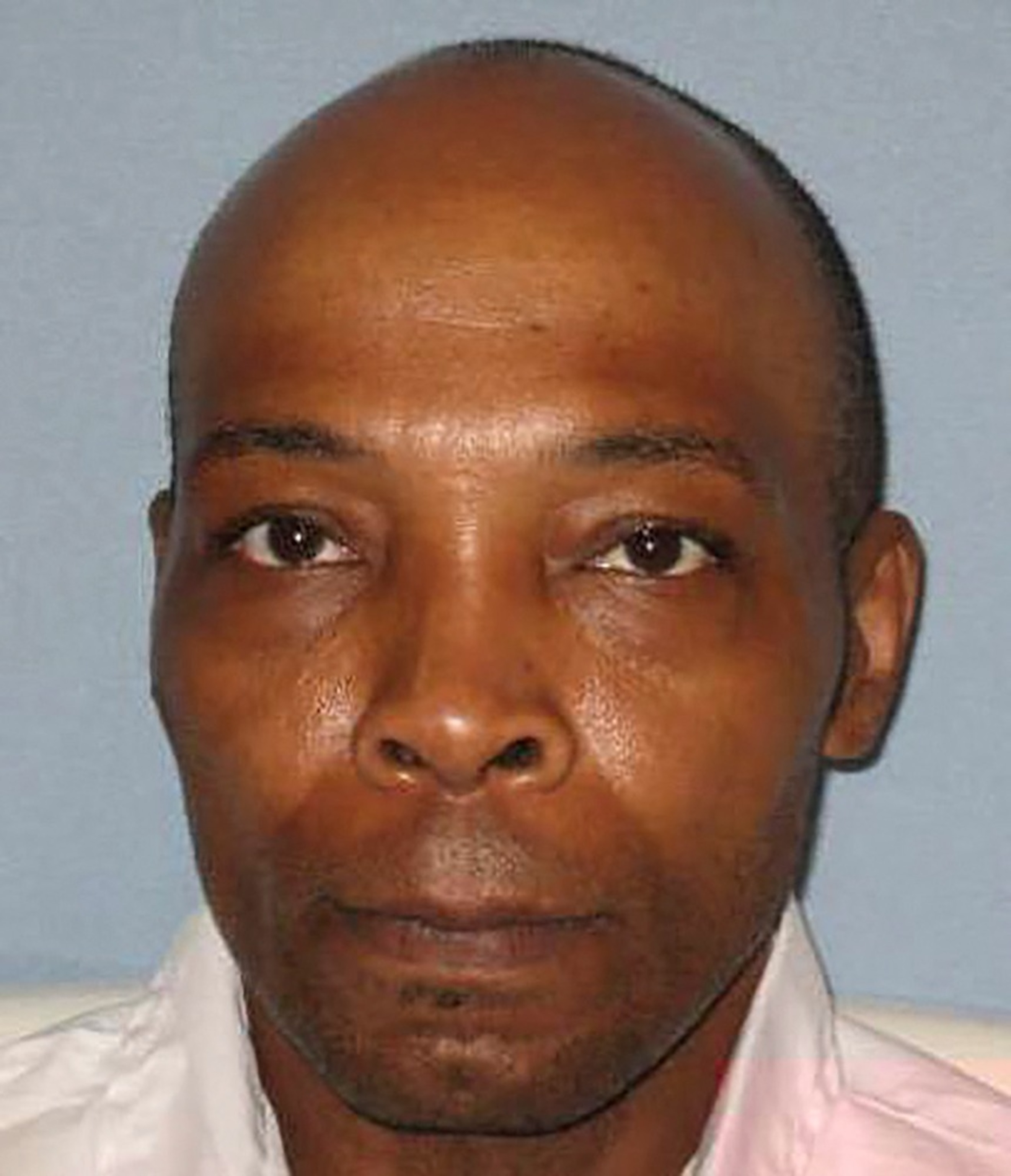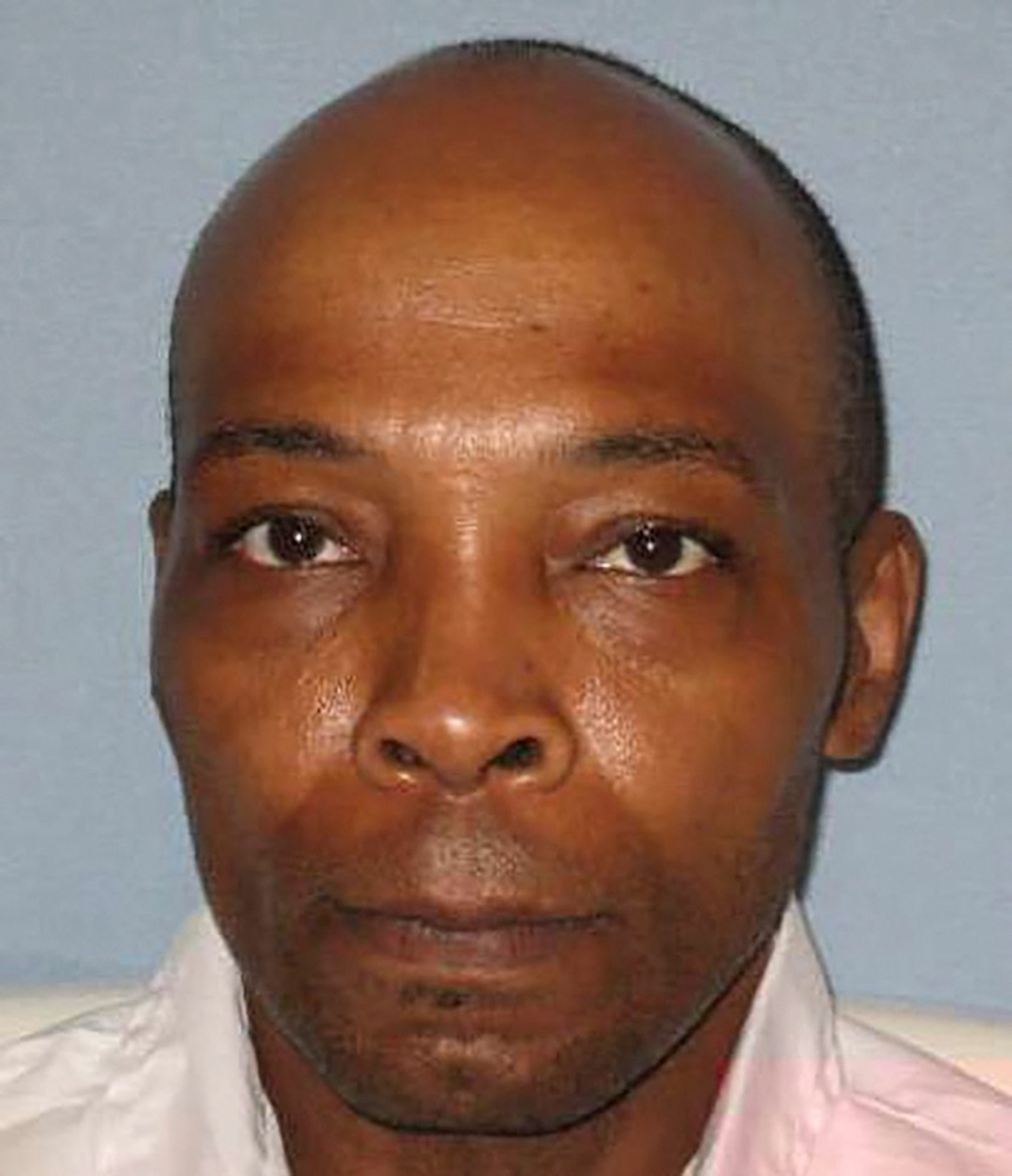An Alabama inmate is scheduled to be executed by lethal injection on Thursday evening, marking the state’s third execution this year.
Keith Edmund Gavin, 64, was convicted on two counts of capital murder in the March 1998 fatal shooting of William Clayton Jr., a delivery driver who was sitting outside a bank in his van. Clayton had stopped at an ATM for cash to take his wife to dinner.
Gavin had previously been convicted of murder — serving 17 years of a 34-year sentence before being released on parole — and attempted murder for shooting at a law enforcement officer, according to court documents, explaining why his charge was elevated to capital murder.
In a 10-2 vote, a jury recommended that Gavin be sentenced to death for his capital murder convictions, and a trial court accepted the jury’s recommendation.
Gavin’s execution date was set by Gov. Kay Ivey at the end of April. Gavin filed a motion on July 12 to stay the execution, which was denied on Tuesday. His execution is set to take place at 7 p.m. ET at the William C. Holman Correctional Facility in Atmore.

his undated handout picture provided by the Alabama Department of Corrections shows death row inmate Keith Edmund Gavin.
Alabama Department of Correction via AP
In a lawsuit filed earlier this year, Gavin asked state officials not to conduct an autopsy on his body after the execution due to his religious beliefs, which the Alabama Department of Corrections agreed to.
“Mr. Gavin is a devout Muslim,” the lawsuit read, according to AL.com. “His religion teaches that the human body is a sacred temple, which must be kept whole. As a result, Mr. Gavin sincerely believes that an autopsy would desecrate his body and violate the sanctity of keeping his human body intact. Based on his faith, Mr. Gavin is fiercely opposed to an autopsy being performed on his body after his execution.”
Grant Alexander Premo, Gavin’s attorney, did not immediately return ABC News’ request for comment.
Lethal injection has been the method used for most executions in the modern era, according to the Death Penalty Information Center (DPIC), a nonprofit that provides data and analysis on capital punishment.
States and jurisdictions can use a one-, two- or three-drug combination. The three-drug combination involves an anesthetic or sedative then a drug to paralyze the prisoner and a drug to stop the heart, the DPIC said.
Problems have arisen with lethal injections in the form of botched executions. Officials have struggled to find veins, intravenous lines have clogged with the deadly chemicals and prisoners have had violent reactions to the dispensed drugs. Additionally, there have been shortages of the drugs used for lethal injection.
Alabama recently authorized the use of nitrogen gas for executions. In January, Kenneth Eugene Smith became the first inmate to be executed with this new method.
Alabama’s second execution this year took place in May, when Jamie Ray Mills was put to death by lethal injection. Alan Eugene Miller, another inmate, is set to be executed by nitrogen gas in September.
On Thursday, February 4th, 2021, an Alabama inmate is scheduled to be executed by lethal injection for the 1998 murder of a delivery driver. This case has garnered significant attention over the years, as it highlights the ongoing debate surrounding the death penalty in the United States.
The inmate, who has been identified as 52-year-old William R. Smith Jr., was convicted of the murder of 22-year-old Casey Wilson, a delivery driver for a local pizza restaurant. The crime took place on December 8th, 1998, when Smith and an accomplice lured Wilson to a remote location under the pretense of placing a pizza order. Once Wilson arrived, Smith and his accomplice robbed and fatally shot him.
Smith was arrested shortly after the crime and was subsequently convicted of capital murder in 1999. He has spent the past 22 years on death row at Holman Correctional Facility in Atmore, Alabama. Despite numerous appeals and legal challenges, Smith’s execution date has been set for this week.
The case has reignited the debate surrounding the death penalty in Alabama and across the country. Supporters of the death penalty argue that it serves as a deterrent to violent crime and provides justice for the victims and their families. They believe that individuals who commit heinous crimes, such as murder, deserve to face the ultimate punishment.
On the other hand, opponents of the death penalty argue that it is an inhumane and outdated practice that does not effectively deter crime. They point to cases of wrongful convictions and racial disparities in sentencing as evidence of the flaws in the criminal justice system.
The upcoming execution of William R. Smith Jr. has sparked protests and calls for clemency from advocacy groups and activists who oppose the death penalty. They argue that Smith’s troubled childhood and history of mental illness should be taken into consideration when determining his fate.
As the date of the execution approaches, tensions are running high in Alabama as supporters and opponents of the death penalty continue to voice their opinions on this controversial issue. The case of William R. Smith Jr. serves as a stark reminder of the complexities and moral dilemmas surrounding capital punishment in the United States.



